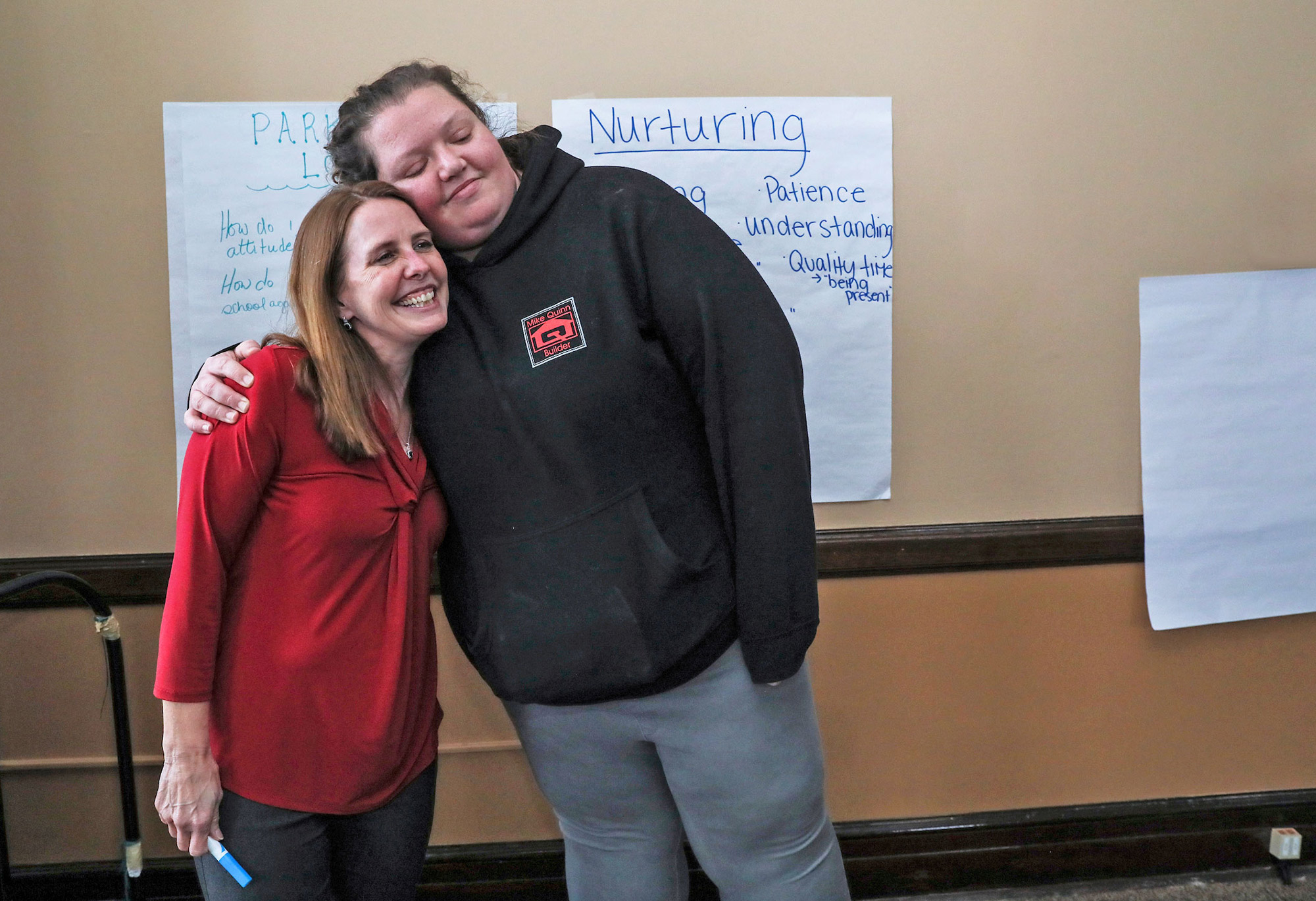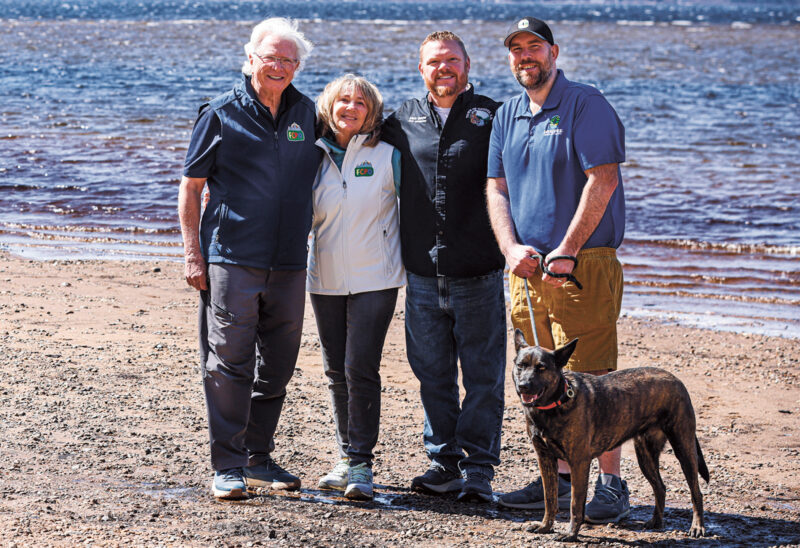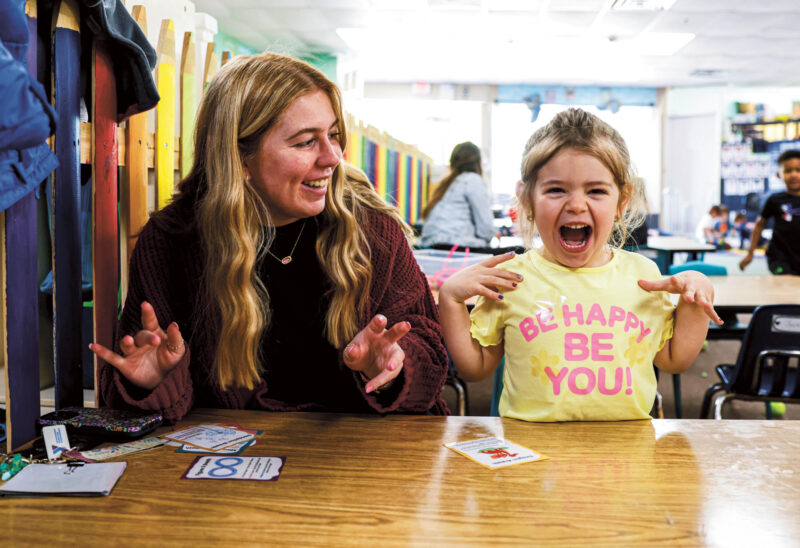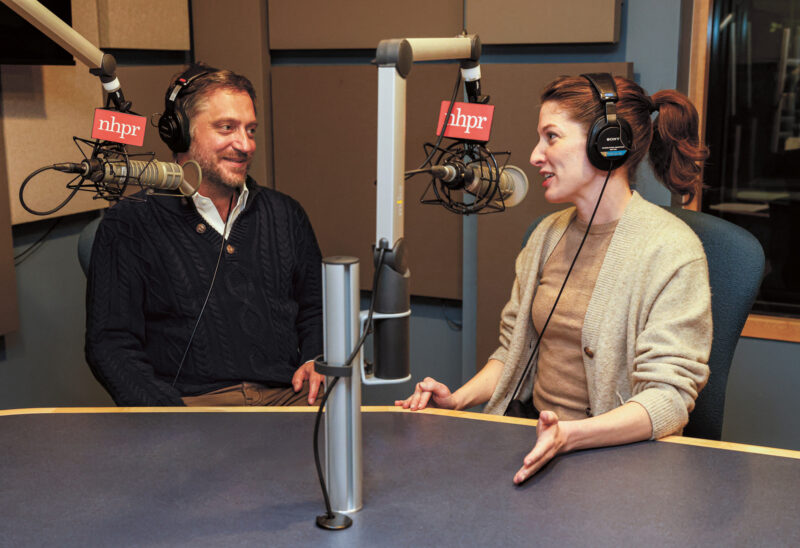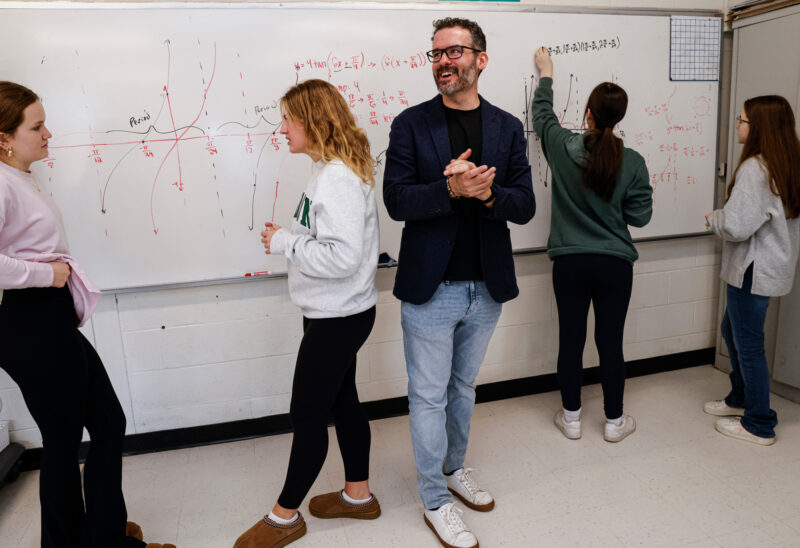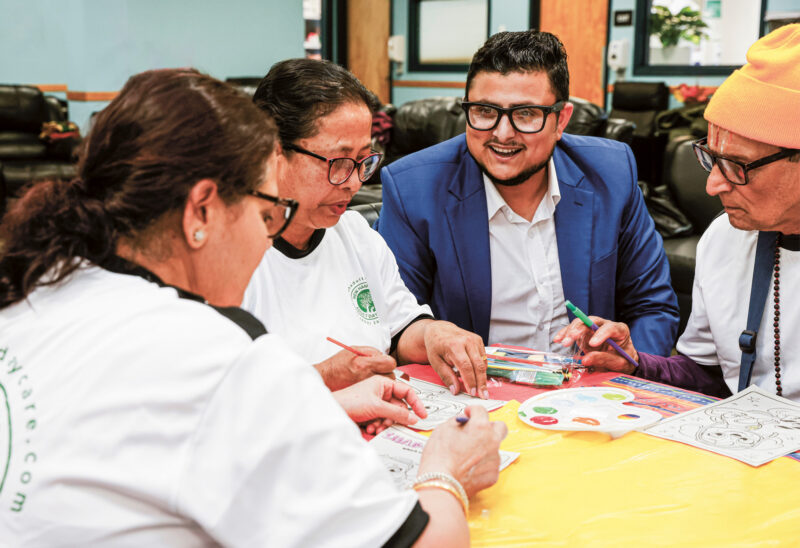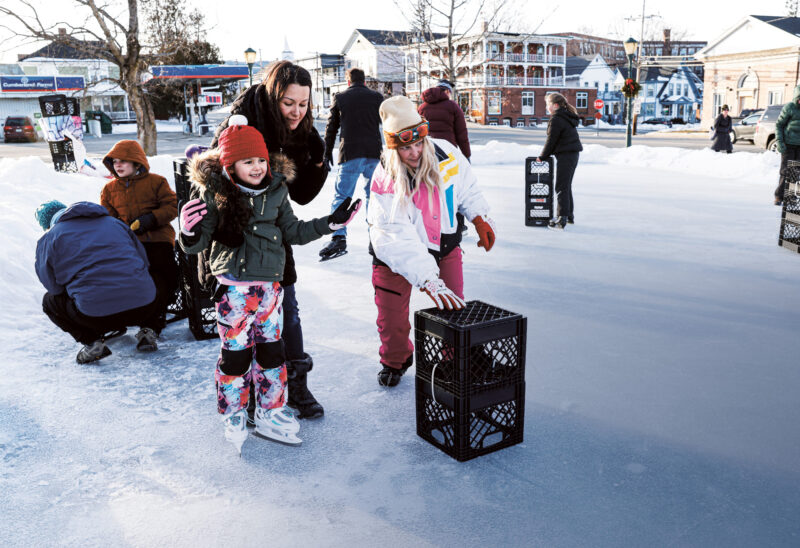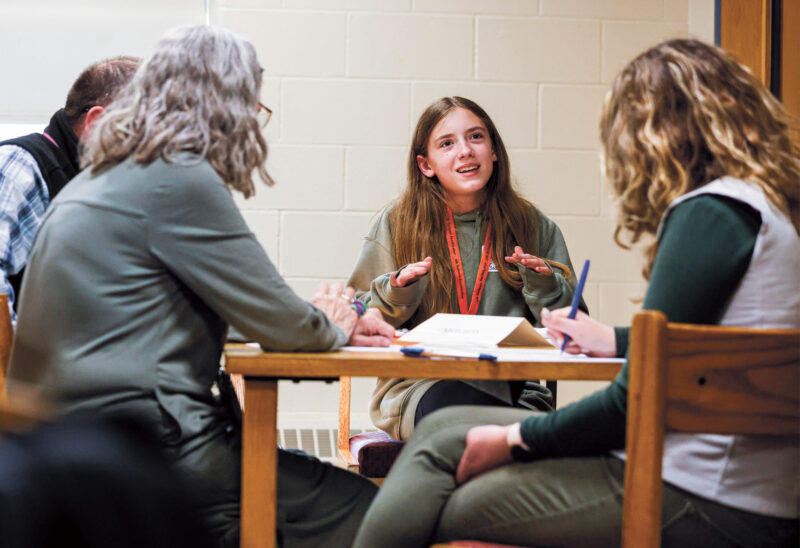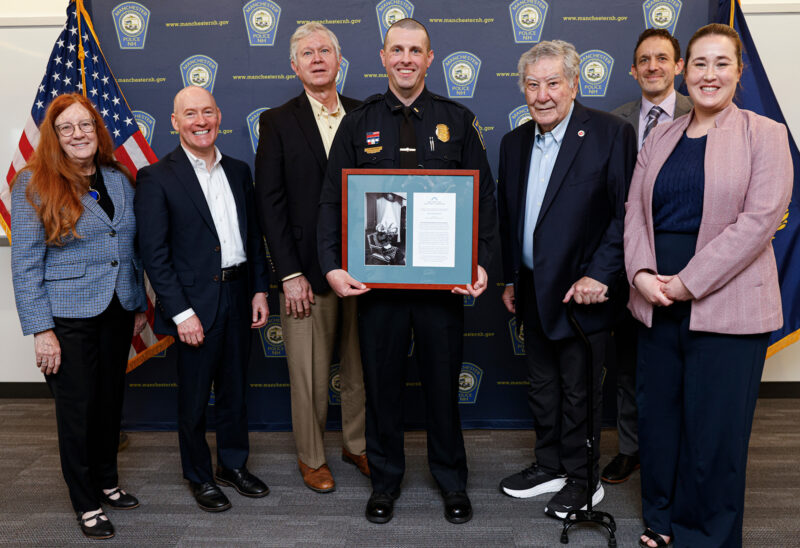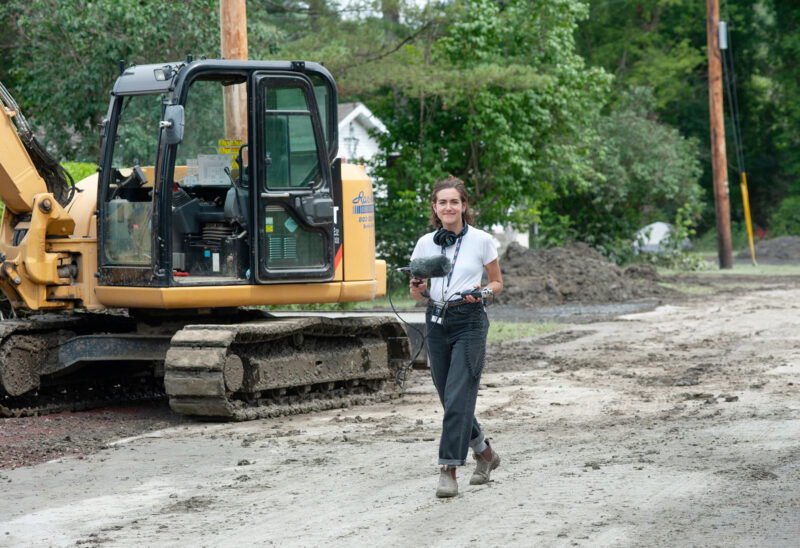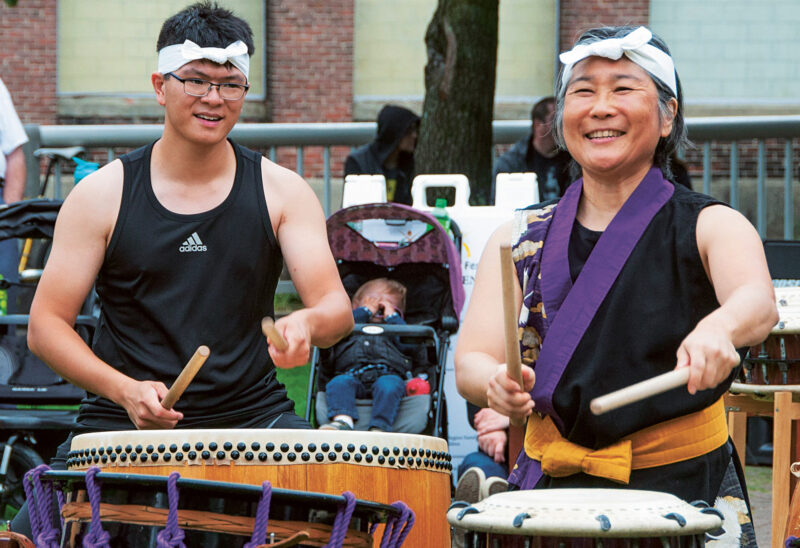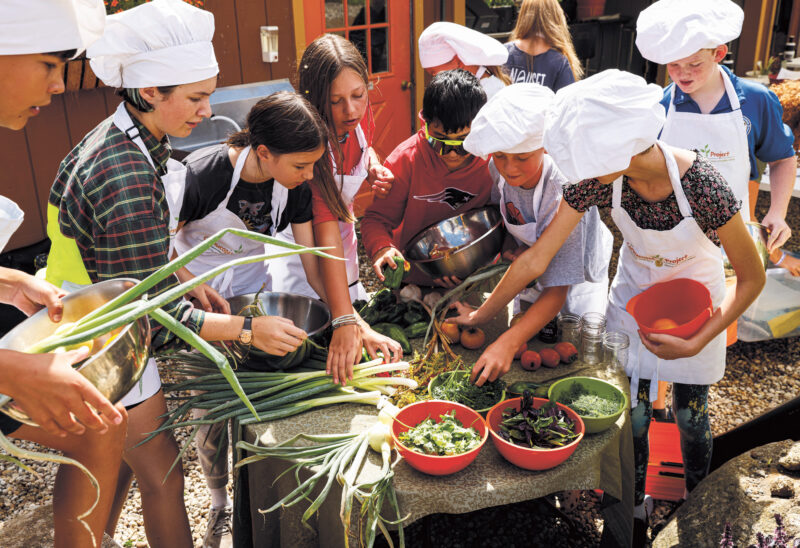The Lakes Region Family Resource Center helped Amanda Littlefield and Frank Paquin of Belmont cope with one of the darkest times of their lives, when Littlefield’s three-year-old daughter, Ryver, nearly died from an accidental medication overdose.
The Center quickly became a bright spot for the family, offering classes and other support that have improved their lives.
“It was like a warm blanket being wrapped around me,” Littlefield said, hugging herself to illustrate the embrace she still feels as part of the Center’s family. “It was like, ‘You are safe here. We are not going to judge you. We are going to do whatever we can to help you, and here are all of the programs that are here for you.’”
Littlefield learned of the Center from the state Division for Children, Youth and Families (DCYF) representative she met after Ryver’s accident five years ago. The toddler’s five-year-old brother climbed onto a counter to reach a bottle of his own medicine that was hidden on a high shelf, and the toddler took some. The agency determined Littlefield was not at fault and suggested she might benefit from a parenting class. She was hesitant, but went. She felt welcomed immediately by the instructor and other parents, learned strategies for keeping medications out of reach and was referred to a program that gave her a safe — free of charge — for securing them.
Littlefield has since taken nearly every parenting and support class the Center offers, has helped present classes for other parents and now is a member of the Center’s Family Leadership Council, which helps determine new services to offer to the community.
The Littlefield/Paquin family is one of more than 500 served by the Center, which is one of 18 family resource centers around the state. The family resource center model brings a range of services for families together under one roof — from prenatal, parenting and positive discipline classes to high school-equivalency training, playtimes, family events and help for grandparents who are raising their grandchildren. Some provide space where Head Start and other preschool programs are provided. Having wraparound services in one location is critical to families in a rural state like New Hampshire, where most communities do not have public transportation.
“We pride ourselves on the fact that no matter what family walks in the door, chances are we have a program or a support that they would find useful,” said Erin Pettengill, the Lakes Region Family Resource Center’s vice president. “And if we don’t offer the support, we know who in the community does.”
“We don’t do ‘for’ families, we do ‘with’ families,” Pettengill said. “We empower them to be resilient and be able to walk on their own after they come through our doors.”
The Center’s programs are supported by some public funding, private donations, the Granite United Way and the Charitable Foundation.
As part of its “New Hampshire Tomorrow” initiative to increase opportunities to young people who need it most, the Foundation is working with family resource centers around the state to help strengthen their capacity to deliver vital services to families.
“Family Resource Centers provide critical services, all under a single roof, that help multiple generations,” said Christina Lachance, foundation director of family and early childhood initiatives. “Strengthening that system will help make New Hampshire better for everyone.”
Some results of the programs offered are immediate, affecting the way parents react to daily issues. Others might not be realized for years. For instance, strategies learned in an early childhood development program or life-skills training might increase children’s abilities to thrive by helping overcome learning, behavioral or physical challenges so they can do well in school, stay healthy and succeed in throughout their lives, in their career, community and family.
Other initiatives include bringing family support services to rural areas and visiting families at home to offer advice or resources.
“They empower you to do it for yourself,” said Littlefield. “That’s huge. You don’t want a program that just comes and says ‘I’ll take care of this, I’ll take care of that,’ because then, we’re not learning anything. They teach you the skills that you need to be self-sufficient.”
It’s made a difference for Littlefield and Paquin and their children.
“It’s a lot easier to parent now because I have the knowledge of what I am supposed to do,” Littlefield said. “I’m not saying things are easy, because they are not, but I am not screaming all the time. I’m not going in the other room to cry.”
Ryver now is 8-1/2 — “and yes, the 1/2 counts,” Littlefield said. Her parents and doctors still monitor her closely for any lasting effects of the accident. “But she can walk and talk and …. talk ….” her mother said.
Littlefield recalls her hesitation to attend her first parenting class five years ago, feeling the class was for “bad parents.”
“It’s not that at all,” she said. “It’s teaching you different ways to handle what is going on and teaching fundamentals that you don’t know that you need until you come. It’s a great resource for everybody.”
And it’s a big family.
“When there is a crisis or a family need, we all get together and figure it out because every single person that we support is part of our family,” said Pettengill.
When Littlefield and Paquin’s home burned down two years ago, everyone at the Center stepped up, grabbing everything they could find in their donation closet that might help, including blankets and kids’ clothing, and providing gift cards to stores, gas stations and restaurants.
“I think one of the most significant things we did though, is we were there for her,” Pettengill said. “She knew we were there for her, whatever she needed.”

